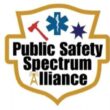Rebanding: the path forward
This past year saw the passing of the 18-month midway point in the FCC’s 800 MHz rebanding schedule. Although some progress is becoming apparent, the path forward is a long one, and a major effort on behalf of all participants will be necessary if we are to resolve the interference issues that have posed such a problem for public safety in the band.
One long-standing issue concerns Sprint Nextel’s narrow interpretation of a statement in paragraph 198 of the FCC’s Report and Order that requires licensees to certify that “the funds requested are the minimum necessary to provide facilities comparable to those presently in use.” Sprint Nextel interpreted this as meaning “absolute lowest cost,” and the company used that interpretation to justify its challenge of virtually every dollar spent on rebanding.
That admission is consistent with the experience of many public-safety licensees, who have been forced to devote scarce time and resources to justifying costs in excruciating detail. Frustration has been rampant as negotiations stalled over relatively small differences between licensees’ estimates and Sprint Nextel’s offers.
On May 28, the FCC clarified its standard, stating that “costs must be the minimum necessary to accomplish rebanding in a reasonable, prudent and timely manner.” Further, the commission said it would be appropriate for Sprint Nextel to agree to a proposed cost if doing so would avoid extended negotiation that would be more expensive than the amount in dispute.
The FCC also clarified the status of facilities operating pursuant to special temporary authority, indicating that a reasonable deference should be made to licensees’ staffing levels in resolving cost disputes. It also rejected consultant costs that were substantially higher than costs for comparable licensee systems and made it clear that Sprint Nextel cannot refuse to negotiate with a licensee regarding its final cutover date, although parties are allowed to agree to defer that issue.
In another major case, which Sprint Nextel is challenging as this issue goes to press (see News, page 22), the FCC required the carrier to replace radios that could operate on current NPSPAC non-mutual aid channels but could not be reprogrammed for such use in the new NPSPAC band, even if the licensee is currently licensed only for mutual- aid operation. The commission properly concluded that the licensee would be losing an important capability unless its radios were replaced.
Further FCC actions to expedite rebanding are expected, and it is apparent that the commission is very serious about moving this project forward. This may be the salvation of the entire process.
Thus far, all participants have been cautious and apprehensive. For instance, if manufacturers ramp up equipment production, will they have an abundance of equipment with no orders? Can public-safety agencies rely on change orders to fill unanticipated cost gaps, or will they be mired once more in negotiation stalemates? The questions go on and on, fed by low levels of trust and waning confidence in the intricate working relationships that must be present to facilitate successful rebanding. Most agree that the process has increasingly become the victim of its own credibility gap.
Nevertheless, the time has come to move past the litany of apprehensions. Rather than waiting for someone to take the first risky step, perhaps everyone should. Tight timelines will be a tremendous challenge for public-safety agencies, but such entities will benefit if they join the other participants in pushing to the greatest degree possible. Perhaps we can begin once again to look forward to the day when life-threatening interference in the 800 MHz band will be on the path to resolution.
Wanda McCarley is the president of APCO International. She is also operations and training manager for Tarrant County 911 District. A certified instructor and curriculum developer, she holds an advanced certification in public-safety communications from the state of Texas.













